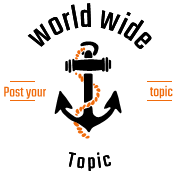The United States Medical Licensing Examination (USMLE) is a critical examination that is mandatory for anyone interested in practicing medicine in the United States. USMLE assesses your abilities and skills in the medical field, making it paramount to develop an impeccable USMLE study plan for you to excel. This examination involves three steps; each cannot stand alone in assessing your readiness for medical licensure. Usually, you undergo the first two steps while still in medical school and the third step after graduation.
Step 1 evaluates your understanding and ability to apply the basic scientific concepts of medicine, emphasizing the mechanisms and principles involving modes of therapy and underlying diseases. This step also creates a sturdy foundation for competent medicine practice and the necessary scientific principles to maintain your competence through lifelong study.
Step 2 focuses on basic patient-centered skills and your ability to implement the principles of clinical sciences, providing a sturdy base for competent medical practice. Step 3 involves the final exams that facilitate the provision of a medical license to practice medicine under no supervision. These exams assess your ability and skills to evaluate physical and history information, perform diagnostic tests, and manage a patient’s medical condition.
How to prepare for USMLE examinations
Developing a study routine for USMLE can be a challenging task. The first step to excelling is adopting the most effective learning techniques, including question blanks, subject-specific review material, and review books. Maximum use of study material enhances your retention and ability to recall. Repetition also improves your memory, making it easy to remember the necessary concepts during your exam. Incorporating active application in your study routine enhances your understanding ability and confidence in excelling. Below are formidable study techniques that will prepare you for your big exam.
- Consult your medical school faculty
The medical school faculty have come across past exams and reviewed them and can advise you on the topics you need to put more emphasis on. They can advise you on the essential knowledge in your field and the less critical details about medicine. Relating well with these people draws you closer to attaining your medical license.
- Download study material
The USMLE and NBME websites have excellent test materials to help you prepare for your test. These practice questions outline the content structure of the examination but may not indicate which sections you need to focus on. Every academic year, the medical school faculty introduces new topics to the content outline and eliminates the older ones, ensuring that the students are up-to-date with the emerging issues in the medical field. These changes may hint at the new questions and information that you may not be able to access from any other sources, making it paramount to review such references.
- Talk to your colleagues and students
Conversing with students and colleagues who took the USMLE exam in the past years can enlighten you on the areas to polish. You can enquire about the topics that were a hard hit and what topics you need to be flawless in. These students may not know the content of your exam, but they can point you to the sections you need to master. While talking to such students, be cautious because most of them are likely to overemphasize their weakest areas, omitting other critical areas of the exam.
- Focus on standard topics
Typically, topics become standard two to three years after attaining lay or scientific community prominence. Standard medical topics appearing in the exams at least two years ago are highly likely to appear in your exam.
- Don’t focus on the last exam
The temptation of studying for the last exam is a trap that may jeopardize your provision of a medical license. This year’s exams have a high chance of differing from the previous year’s. Every year has unique exam content because the tests are computerized.
Scheduling discussions with your study partner can also be beneficial in understanding and recalling course material. Ensure that you get a study partner that motivates and helps you handle topics you may find challenging. Discussing your progress lets you determine the uncovered topics and the adjustments you need to make in your study sessions to achieve your optimal goal.




